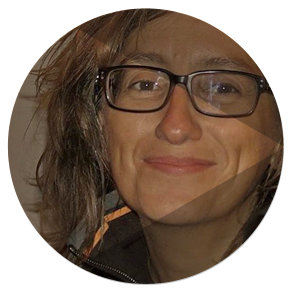
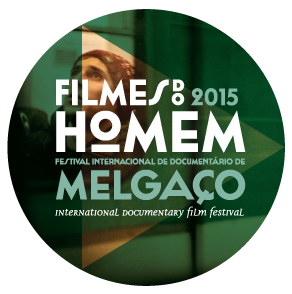
GO FORTH
GO FORTH
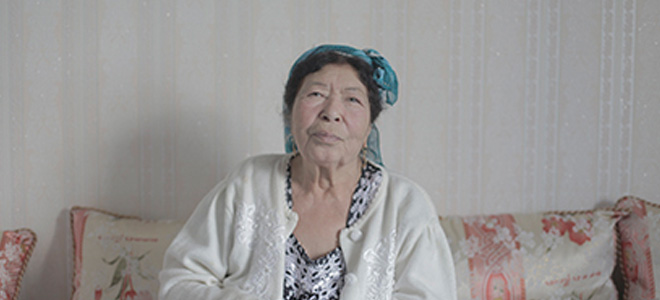
Soufiane Adel, France / 2014 / 62'
Through the portrait of a 79 year-old woman, my grandmother Taklit Adel, born in Algeria and living in France for 60 years, we discover personal and historical narratives and explore the Parisian suburbs and its sets. A personal story taken from the collective history.
- Director: Soufiane Adel
- Screening: HD 16:9
- Photography: Soufiane Adel and Angela Terrail
- Sound: Claire Anne Largeron
- Editing: Jérémy Gravayat
- Production: Aurora Films
Soufiane Adel
Soufiane Adel was born in Algeria in 1981. He arrived in France at the age of 8. He discovers cinema while studying industrial design at the ENSCI School. It was not by chance: he spent his childhood watching Jean-Claude Van Damme and the New Hollywood movies. He has his first meeting with Italian neorealism and experimental cinema at the age of 20, and so begins his cinephilia, self taught, random and compulsive. In 2004, he decides to film his father, and asks him to play a scene they have already experienced together. This will be his fist short movie: “Nuits Closes”. “La Cassette”, then “Kamel s’est suicide six fois, son père est mort” followed afterwards. Since 2009, he codirects his movies with Angela Terrail, with whom he has worked ever since “La cassette”. They directed “Sur la tête de Bertha Boxcar” and are currently preparing a feature length film, a contemporary adaptation of Jack London’s “Martin Eden”.
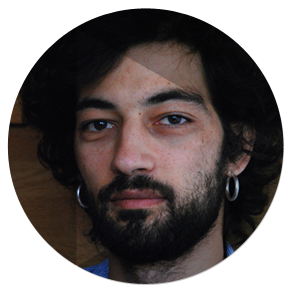
EVAPORATING BORDERS
EVAPORATING BORDERS
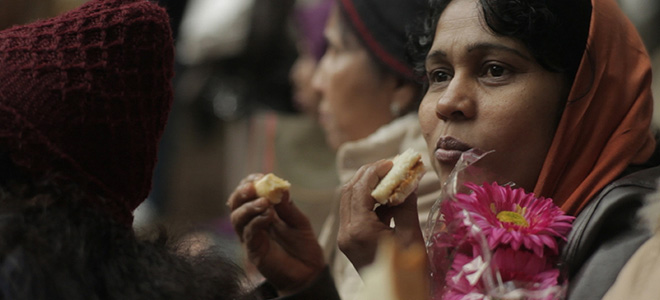
Iva Radivojevic, USA / Cyprus/ 2014 / 73'
Evaporating Borders develops a sweeping visual essay on global restrictive attitudes toward migrating populations. Guided by the filmmaker’s curious eye and personal reflections, the film dissects the experience of asylum seekers in Cyprus. Through a series of vignettes, it poetically weaves themes of migration, tolerance, identity and belonging.
- Director: Iva Radivojevic
- Screening: HD 16:9
- Photography: Iva Radivojevic
- Sound: Josh Berger, John Moros, Ian Gaffney-Rosenfeld
- Editing: Iva Radivojevic
- Production: Ivaasks Films
Iva Radivojevic
Iva Radivojevic is an award winning filmmaker based in Brooklyn, NY. She spent her early years in Yugoslavia and Cyprus before settling in NYC. Her films explore the theme of identity, migration and immigrants. The people she portrays tend to live in multiple worlds that allow for a form of hybridity. Iva’s films have screened at numerous film festivals including SXSW Film Festival, Rotterdam IFF, Human Rights Watch, HotDocs Film Festival, were shown at The Museum of Modern Art (MOMA), and were broadcast PBS, The Documentary Channel as well as the New York Times Op-Docs. Iva was named one of 25 New Faces of Independent Film of 2013 by Filmmaker Magazine. Her first feature length documentary “Evaporating Borders,” was recently nominated for an International Documentary Association (IDA) Award as well as a Cinema Eye Honors Spotlight Award and is currently touring the world. Follow what she’s up to at www.ivaasks.com .
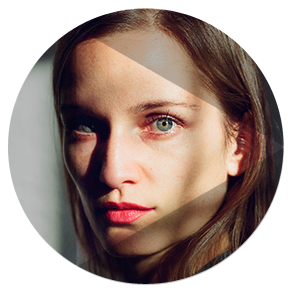
NOWHERE TO CALL HOME: A TIBETAN IN BEIJING
NOWHERE TO CALL HOME: A TIBETAN IN BEIJING
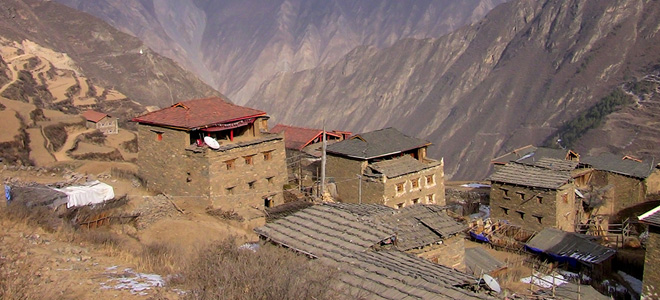
Jocelyn Ford, USA / 2014 / 83'
Widowed at 28, Tibetan farmer Zanta defies her tyrannical father-in-law and after her husband's death refuses to marry the family's only surviving son. When Zanta's in-laws won't let her seven-year-old go to school, she flees her village and heads to Beijing where she becomes a street vendor. Destitute and embattled by discrimination, Zanta inveigles a foreign customer into helping pay her boy's school fees. On a New Year's trip back to her village, Zanta's in-laws take her son hostage, drawing the unwitting American into the violent family feud. The two women forge a partnership to try to out-maneuver the in-laws, who according to tradition get the final say on their grandson.
- Director: Jocelyn Ford
- Screening: HD 16:9
- Photography: Jocelyn Ford, Kai Yang, Wu Hao
- Sound:
- Editing: Geoff Gruetzmacher, Emma Morris, Gigi Wong
- Production: Jocelyn Ford, Wu Hao
Jocelyn Ford
Jocelyn Ford, former Beijing and Tokyo bureau chief for the U.S. public radio show Marketplace, has been based in East Asia for three decades. Her groundbreaking reporting on "comfort women" in the 1990s was a catalyst for raising awareness about World War II abuses of women by Japan's military. During three years of filming NOWHERE TO CALL HOME, Jocelyn overcame restrictions on access to Tibetan communities to shine light on the complex choices facing Tibetan farmers living in contemporary China, and to lend new insights into the social fragility of the world's fastest rising power.
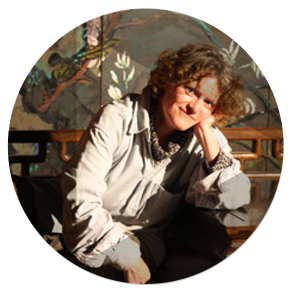
SOUVENIRS D'UN FUTUR RADIEUX
MEMORIES OF A BRIGHT FUTURE
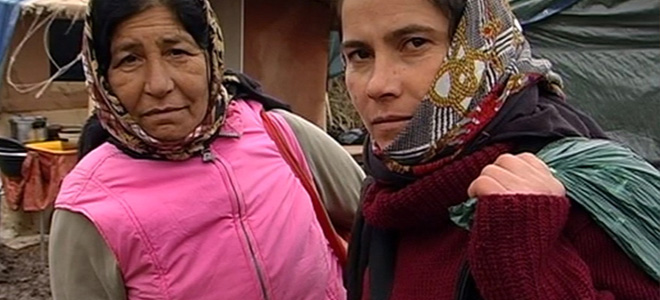
José Vieira, France / 2014 / 90'
"Souvenirs d'un futur radieux" is the intertwined story of two slums that were built, 40 years apart, in the same territory on the outskirts of the city. In Massy, just outside the south of Paris, we live in a slum in a time of growth and prosperity, full employment and a promising future. It was the Sixties. They live in a slum in a climate of crisis, unemployment and exclusion. We are at the beginning of the 2000’s. They come from a rural area where there is no work, where they have no land. Most of these Romanians have difficult stories. They are fleeing a country where they are rejected. We had escaped from a quasi feudal society, a dictatorship inherited from the inquisition. Our slum was populated by peasants, of the most illiterate kind, who came from remote villages over the centuries. We came from Portugal, they come from Romania. The views on these two migrations, intersected by the postwar 2000s growth news, question us about our hospitality, about the treatment inflicted by France to its foreigners, outline a common memory of slums and show that immigration is a story, a story of people struggling to escape poverty and who persevered despite discrimination, in its struggle for recognition.
- Director: José Vieira
- Screening: PAL
- Photography: José Vieira
- Sound: José Vieira
- Editing: José Vieira
- Production: Zeugma films
José Vieira
José Vieira, film director of Portuguese origin, lives and works between Portugal and France. He has directed around thirty documentaries since 1985, namely for France2, France3, La Cinquième and Arte. His body of work, dedicated mainly to the issue of emigration, has been shown in various international film festivals. José Vieira has given visibility to the story of one million Portuguese people, who left the country in the sixties, most clandestinely - "on the hop", as it was called - in what was the largest human migration in twentieth century Europe.
Born in Oliveira de Frades, he left for France in 1965, at the age of seven. His personal experience as a migrant and the many stories heard and related from other emigrants inspired his latter-day work as a director. Starting from individual stories, he traced the portrait of emigration in France, recovering an entire collective memory in the process. His documentaries are essential to understand the history of thousands of Portuguese people who sought a better life during the Estado Novo dictatorship.
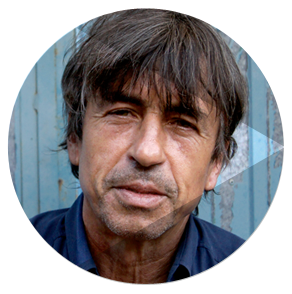
HE BU TUNE BU
ONCE UPON A TIME
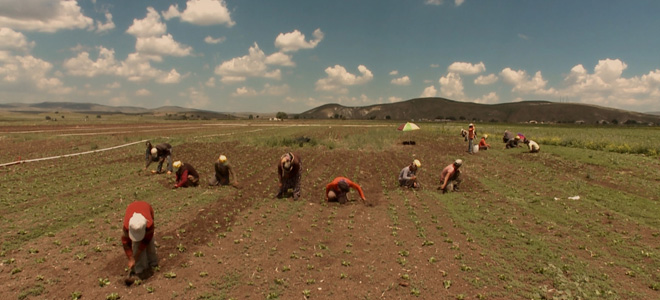
Kazim Oz, Turkey / 2014 / 81'
A poor crowded Kurdish family arrives from Batman to Ankara to work on the fields every year. Without any benefits and with very low wages, the family works to gain a living by cultivating lettuce. This year, the story takes a different turn gearing into a sudden, unexpected love story. The tale being told by the mother to her kids in the tent on the fields becomes real. The docudrama also narrates the process of lettuce coming from the fields to diner tables. It reveals that so many stories and so much labor stand behind the simplest food we find on our tables. It also shows that modern slavery continues to exist even in today's world.
- Director: Kazim Oz
- Screening: HD
- Photography: Kazim Oz, Semih Yildiz
- Sound: Selahattin Mardin
- Editing: Kazim Oz, Semih Yildiz
- Production: Yapim13 Film Production & Al Jazeera
Kazim Öz
He was born in 1973 in Dersim. With his first short film Ax (The Land) he won many international awards.
He completed his first feature film Fotoğraf (The Photograph) in 2001 and won many awards. One of the festivals was National Geographic All Roads Film Festival. The movie was released in Turkey and Germany in 2002.
In 2005, with his first feature documentary Dur (The Distant, 74 min), he won “The Best Documentary“ award in Nurnberg IFF and in Ankara IFF. The film was created with the help of IDFA Jan Vrijman and screened in ARTE France and international televisions.
He produced and directed the film Bahoz (The Storm, 2008) and met with an audience of more than 100000.
The docudrama Demsala Dawi: Şewaxan (The Last Season of Shawaks, 2010) was accomplished with the coproduction of Arte-France. The film was bought and sold by Arte-France and it was showed in many international televisions.
In 2011, he was a member of Milano Film Festival jury.
He transformed the script of Bahoz (The Storm) into a book and the Agora Kitaplığı published it in 2011.
He won Libraries Award in Cinema du Reel; FIPRESCI Award & Special Mention of Jury Award in Istanbul IFF; Best International Feature in Montreal Intl Documentary Festival with He Bû Tune Bû (Once Upon a Time, 2014), a joint project with Al Jazeera TV.
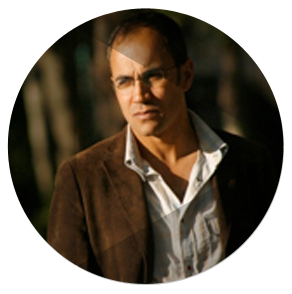
INTERNAT
INTERNAT
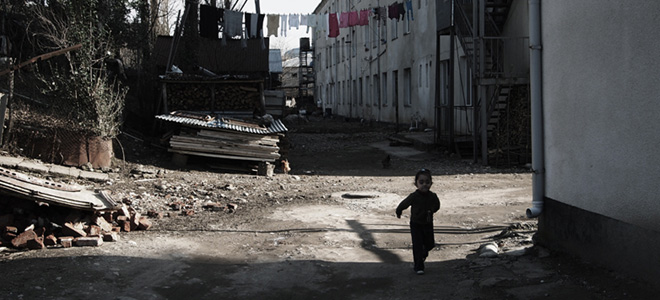
Maurilio Mangano, Italy / 2014 / 71'
The setting is Georgia, twenty years after the ethnic Georgian-Abkhazian conflict that, from 1992 to 1993, bloodied and terrified the country already tested by a long civil war. The story takes place in Kutaisi, specifically Internat (college), a former schoolhouse occupied by about sixty families that fled the Georgian war in 1993, from Abkhazia. The protagonists are three brothers, Gia, Gela, and Lado Ugrexelidze, their families, their distant mother, children and grandchildren. They have been living in Internat for twenty years, building day after day their home, but also a sanctuary of what is now the memory of their past life, their native land, and of their childhood memories. Above all, the recovery of their ancestor’s tombs is crucial in order to keep the link between them and their cultural existence, intact. The children who grew up in Internat, in turn inherited the same traditions as their fathers, yet found a way to transform them into a game by magnifying the adventures of those war heroes of which their parents narrate. In the Internat, life, death, and love are blurred together in an endless circle that will only be broken when these alienated families return to their home, Abkhazia. Internat is a temporary “home”, a vestibule of memories, ghosts, and nostalgia.
- Director: Maurilio Mangano
- Screening: HD 16:9
- Photography: Irma Vecchio
- Sound: Danilo Romancino
- Editing: Chiara Andrich
- Production: Claudio La Mantia
Maurilio Mangano
Maurilio Mangano, Palermo Class of 1980. In 2002, he began working in film as an Assistant Director as well as Production Assistant, before finally specializing as a Casting Director through his many Street Castings for various cinematographic, television, and documentary productions such as RAIFICTION, RAIEDUCATIONAL, Cattleya, Wildside, Magnolia Fiction, Demetra Produzioni, Vivo Film and Fandango. In 2010 he signed his first direction with the short film “What’s the difference?”
In 2014, he’s written and directed his first film, INTERNAT, a documentary about the sons of the Georgian-Abkhazian war of 1992-1993. He also works as a photographer and reporter, collaborating with VICE Magazine and the Observatory of Balkans and Caucasus. He lives in Tbilisi.
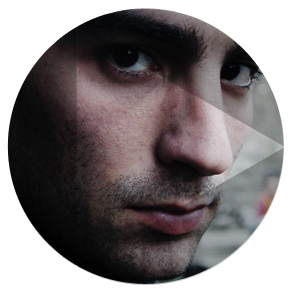
THE SHELTER
L'ABRI

Fernand Melgar, Italy / 2014 / 101'
A winter in the heart of an emergency shelter for the homeless in Lausanne. At the door of this almost unknown underground take place every night the same dramatic ritual that leads to fights, sometimes violent. The guards have the difficult task of "screening of the poor": women and children first, then men. Although the total capacity of the shelter is 100 seats, only 50 "elected" will be admitted and will have a hot meal and a bed. The others know that the night will be long.
- Director: Fernand Melgar
- Screening: HD 16:9
- Photography: Fernand Melgar
- Sound: Elise Shubs
- Editing: Karine Sudan
- Production: Climage
Fernand Melgar
Born in 1961 in Tangier into a family of Spanish anarchist exiles, he was clandestinely snuck into Switzerland by his parents in 1963 when they entered as seasonal workers. In the early 80s he and his friends founded Le Cabaret Orwell, a mecca of underground culture in western Switzerland, followed by the internationally famous rock venue La Dolce Vita. Following a screening of experimental films, he turned himself into a self-taught independent film director and producer. He created experimental films and iconoclastic television segments in 1983. In 1985 he joined the production company Climage, with whom he has stayed a faithful collaborator, and has produced over twenty well-regarded documentaries on the subjects of immigration and identity. He was the editor for the films of Jacqueline Veuve, whose Le Journal de Rivesaltes was awarded with the Swiss Film Award in 1998. His documentary Exit – the right to die received several international awards including the prestigious Golden Link UER Award for the best European co-production and also the Swiss Cinema Award in 2006. In 2008 his documentary The Fortress won the Golden Leopard at the Locarno Film Festival as well as many other international awards. His film Special Flight, shot in 2011 in an administrative detention centre, received more than thirty international awards, including the Swiss Film Award and the Prix Europa. In his 2013 follow-up The world is like that, Fernand Melgar tells the story of some of Special Flight’s protagonists after their expulsion from Switzerland. His last film The Shelter was filmed in an emmergency shelter for homeless people in Lausanne.
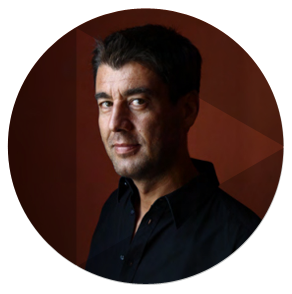
NERMINA'S WORLD
NERMINA'S WORLD
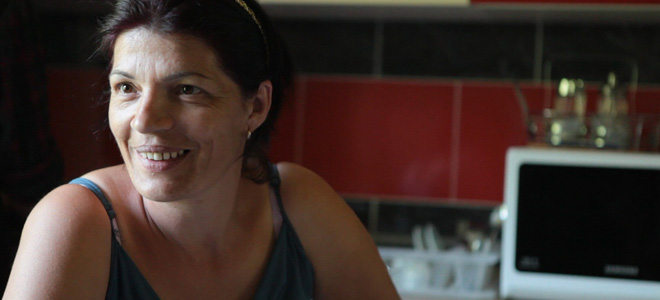
Vittoria Fiumi, Italy / 2014 / 54'
Nermina survived the 1992 massacre in which many members of her family were killed. She has come back to live in her native village with her son and daughters, she farms and breeds cows, the only means she has of making a living. Her two daughters, Almedina and Melisa, are now adolescent, they share the desires and ambitions of their generation: Almedina would like to go abroad, Melisa wants to go to university. Observing their life, day after day, over a period of one year, I tried to capture the relation between the mother and her daughters in a delicate moment, full of choices. In the background the harshness of country life, in a village that is still afflicted by the consequences of the recent war, a village that seems to be waiting for something, where one question in particular seems to be recurrent, “should I stay or leave?”
- Director: Vittoria Fiumi
- Screening: HD 16:9
- Photography: Vittoria Fiumi
- Sound: Jasmina Banjaluckic, Elisabeth Armand
- Editing: Lorenzo Pazzi
- Production: Vittoria Fiumi, Flavia Oertwig
Vittoria Fiumi
Vittoria Fiumi, film director, studied visual anthropology at the University of Manchester (UK). Vittoria has specialised in the creation of films that explore the relation between nature and culture with a creative and innovative approach, combining experimental elements with those of documentary and fiction genres. She has produced and directed two short documentaries: Peaceful Place (Human Rights FF, Bologna, Los Angeles, Sarajevo 2006) and All of a sudden it was dark (IDFA doc for Sale 2009, Doc under 30). Her last film Nermina’s World was selected for the 2014 competition Visions du Rèel in Nyon. The film entered the finalist shortlist for the Solinas award, a prize for screenwriters, and was awarded the Corso Salani Prize (for best work in progress) at the Trieste Film Festival. Produced by Fiumi Film and Tama Film (Flavia Oertwig), it is a Swiss, German and Italian co-production with the support of the Cineteca di Bologna, Film für Eine Welt and Film Commission Baden-Württemberg. In 2014 Vittoria Fiumi was selected by the Filmmaker Academy of the Locarno Film Festival as emerging director. She was awarded the prestigious Nipkow scholarship for her new project 3TimesMe. She lives and works between Switzerland and Italy.
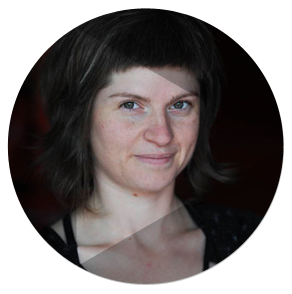
DE ARMAS E BAGAGENS
BAG AND BAGGAGE
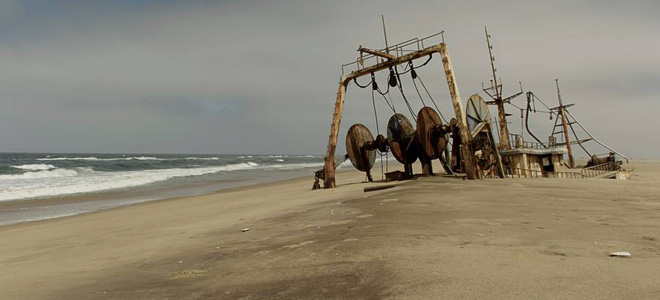
Ana Delgado Martins, Portugal / Angola / 2013 / 72'
What would you take with you if running from home without knowing if you would ever go back? From 1974 to 1976, near 300 thousand portuguese people left Angola. Among which 100 thousand born there. This is the story of their incredible escape from Angola, either by land, sea or air and all they didn't want to leave behind.
- Director: Ana Delgado Martins
- Screening: HD 16:9
- Photography: Marta Pessoa
- Sound: Paulo Cerveira
- Editing: Márcia Costa
- Production: Real Ficção
Ana Delgado Martins
Born in 1981, Ana Delgado Martins leads the predictable double life of someone who enjoys to tell stories in every possible way. Radio Producer and reporter in the morning. Directing and Scriptwriting Film in the afternoon. In the summer of 2010 won a ZON scholarship that took her to Austin, Texas University to undertake an intensive course in Film directing, scriptwriting and Production. There came up her first short film \"Volta\", winner of the Shortcutz Lisboa 2010 best photography award. Her second short film \"Encadeados\" won the Canon Award at the Lisbon & Estoril FilmFestival in 2011. \"De Armas e Bagagens\" is her first Feature Film. Produced in 2013 by Real Ficção and Africa Zoom'in, with the support of ICA (Instituto do Cinema e Audiovisual), RTP (Rádio e Televisão de Portugal) and the MEDIA Program.

MEIO CHEIO MEIO VAZIO
HALF EMPTY, HALF FULL
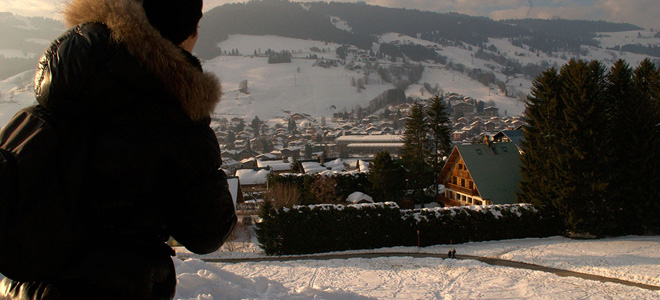
Alexandre Martins, Portugal / 2014 / 65'
A film told in the first person, reporting the emigration of two friends. Alberta already has some previous experience working abroad; For Alexandre, it is his first time leaving the country to work.
- Director: Alexandre Martins
- Screening: HD 16:9
- Photography: Alexandre Martins
- Sound: Alexandre Martins
- Editing: Alexandre Martins
- Production: Alexandre Martins
Alexandre Martins
Alexandre Martins is a cinema graduate in script writing from Escola Superior de Teatro e Cinema de Lisboa. He is presently working as an actor and teacher in the field of audiovisual.
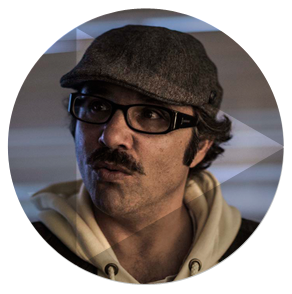
AQUI TEM GENTE
PEOPLE LIVE HERE
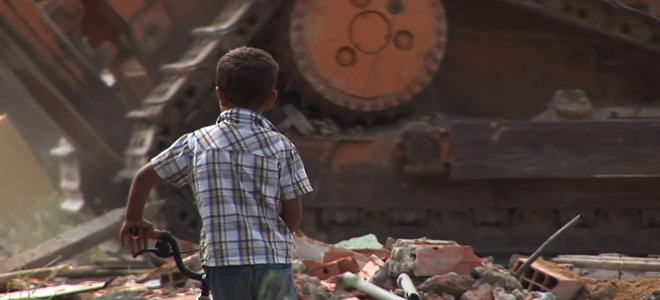
Leonor Areal, Portugal / 2013 / 81'
Lisbon, Portugal, Europe, 2011. A slum is about to be demolished. The City Council is determined to do it, but gives no alternative accommodation to the people. On the verge of becoming homeless, dwellers organize to defend their right to housing. African and gypsy communities make decisions in popular assemblies. Women lead a central role in fighting for their human rights. This documentary follows the process during six months of pressure and negotiations with local power. It also address issues about the role of activists, and social housing policy in a time of severe crisis.
- Director: Leonor Areal
- Screening: HD 16:9
- Photography: Leonor Areal
- Sound: Rui Viana Pereira
- Editing: Leonor Areal
- Production: Obra Aberta
Leonor Areal
Leonor Areal (Lisbon, 1961) bought her first photo camera at the age of 8. After taking literature studies, she converted herself into video. She has directed more than 15 films, most of them in the documentary field. With ‘Drama at School’ (1993) she won a prize and a scholarship to New York Film Academy. ‘Happy Generation’ (2000) was shown at Odisea channel. ‘Ilusiad – My life could be a movie’ (2002) was broadcasted by RTP. ‘Outlaw’ won a special mention for the distribution award at Doclisboa 2006, had a nomination for the Nuovi Sguardi award at Torino GLBT Film Festival 2008, and was released in dvd in 2009.
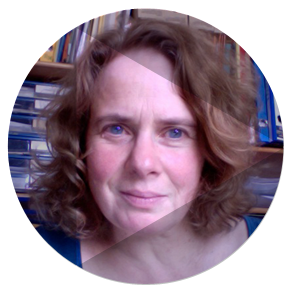
A FOLYÓN TÚL
OVER THE RIVER
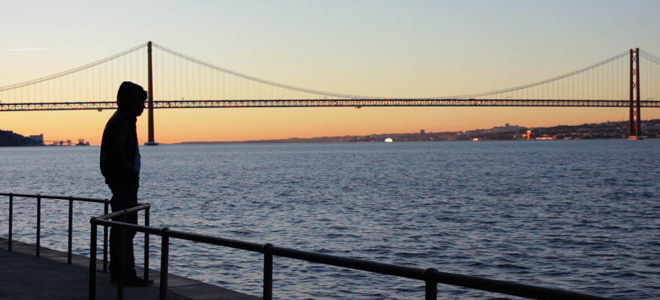
Dorottya Zurbó, Portugal / 2013 / 10'
On the other side of the river Tagus a row of abandoned and ruined factory buildings are located on the right-hand side of the riverbank, facing the traditional postcard view of Lisbon. Only the wasted and destroyed grey walls covered with graffiti remain from the once huge, olden dockyards. In one of the abandoned rooms, behind a curtain, lives Eddie, a 23 year old Cape Verdean immigrant who arrived in Portugal all alone, 5 years ago. He dreams of becoming a rapper one day. The film gives us an inside and poetic view of his everyday life on the border between two worlds.
- Director: Dorottya Zurbó
- Screening: HD 16:9
- Photography: Dorottya Zurbó
- Sound: Dorottya Zurbó
- Editing: Dorottya Zurbó
- Production: DocNomads
Dorottya Zurbó
Dorottya Zurbó was born in Budapest, Hungary in 1988. She is a recent graduate from the first edition of Documentary Film Directing Master’s (DocNomads) for which she was awarded full scholarship. She is also an honors graduate in film theory and history from ELTE, Budapest. Her films have been recognized as label films in Doc Nomads and have won several awards including the Best Documentary in the Student Competition at the 21st Astra Film Festival in Romania, 2014. Her films have been screened in many festivals in the past and are being screened at Verzió, Balinale and Doclisboa. She is passionately embarking on a career of making documentary films.
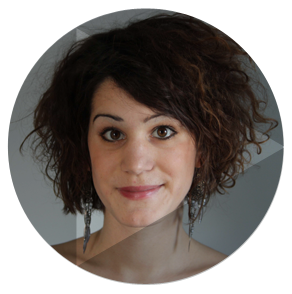
CHANTAL
CHANTAL
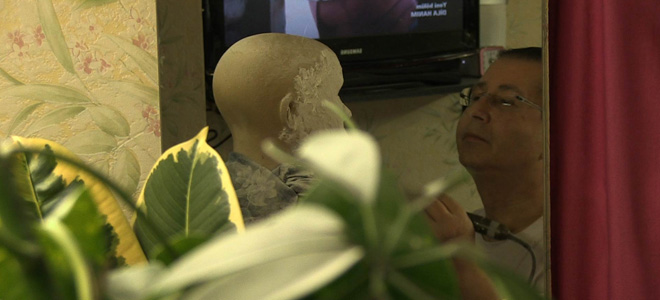
Joana de Verona, France / 2013 / 22'
Ali makes and remakes Chantal. She is his companion. His mirror. This documentary as well as a portrait of the loneliness of a man and his behaviour is also a reflection of how this, to feel uprooted from their country, creates a particular reality in the great European capital, in a country far from his, where Ali is not inserted or relates to any member of the Turkish community in Paris.
- Director: Joana de Verona
- Screening: HD 16:9
- Photography: Joana de Verona
- Sound: Letizia Buoso, Ana Fuga, Clara Iparraguirre, Valérie Rohart, Mina Rad
- Editing: Susana Kourjian
- Production: Ateliers Varan
Joana de Verona
Joana de Verona is a Portuguese/Brazilian actress (B. 1989) mostly known for "how to draw a perfect circle" (2009) by Marco martins. "Mysteries of Lisbon" (2010) Raul Ruiz. "Lines of Wellington" (2012) Valeria Sarmiento, "Rafa" (2012) de João Salaviza and "Arabic Nights" (2015) Miguel Gomes, among others.
"Chantal" is her first documentary, produced at Ateliers Varan, (Paris).

À MILLE LIEUES DE LA RÉVOLUTION
A THOUSAND MILES FROM THE REVOLUTION

Behzad Adib, Canada / 2013 / 12'
Imad left Damascus to settle in Montreal in 1984. Since then, he divides his time unequally between his work as a taxi driver, his family, and his immoderate consumption of news bulletins. Media coverage of the Syrian revolution feeds his desire to contribute to the creation of a free and modern Syria, in spite of the distance.
- Director: Behzad Adib
- Screening: HD 16:9
- Photography: Jean-Pierre Saint-Louis
- Sound: Marco Fania
- Editing: Gino Civiero
- Production: Olivier Barthomeuf
Behzad Adib
Of Iranian origin, Behzad initially studied medicine in France before coming to Montreal to pursue studies in education and relationship counseling. He was a director and theater actor. His facination with human beings and his deep desire to express this led him to complete L'inis Documentary Program to become a filmmaker.
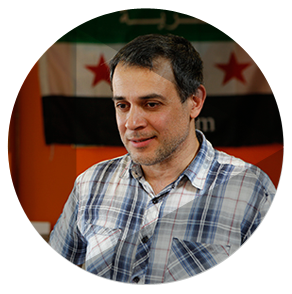
XENOS
XENOS
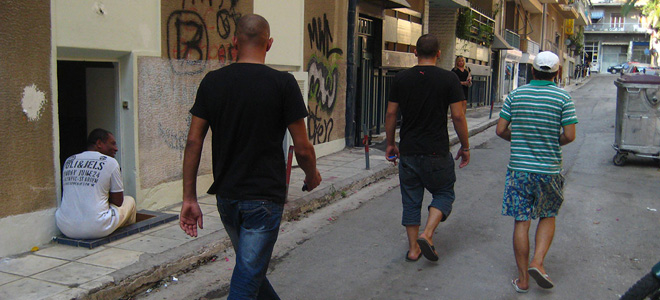
Mahdi Fleifel, UK / Greece / Denmark / 2013 / 12'
In 2010, Abu Eyad and other young Palestinian men from the Ain el-Helweh refugee camp in Lebanon travelled with smugglers through Syria and Turkey into Greece. Like so many other migrants, they come looking for a way into Europe but found themselves trapped in a country undergoing economic, political, and social collapse.
- Director: Mahdi Fleifel
- Screening: HD 16:9
- Photography: Mahdi Fleifel
- Sound: Gunnar Oskarsson
- Editing: Michael Aaglund
- Production: Patrick Campbell
Mahdi Fleifel
Mahdi Fleifel is a Palestinian filmmaker and visual artist based in London. He was born in Dubai, raised in the Ain El-Helweh refugee camp in Lebanon and later in the suburbs of Elsinore, Denmark. He graduated from the British National Film and Television School in 2009. His recently completed feature documentary, ‘A World Not Ours’, is currently touring the festival circuit and has already picked up multiple awards.
His next feature, ‘Men In The Sun’ is based on the themes and characters encountered while making Xenos, and is currently being developed as part of the New Danish Screen scheme.
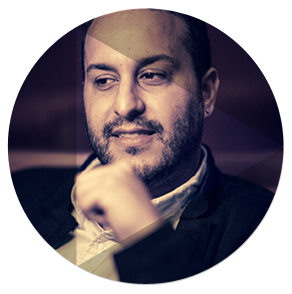
9546 KM. (MY WORLD)
9546 KM. (MY WORLD)
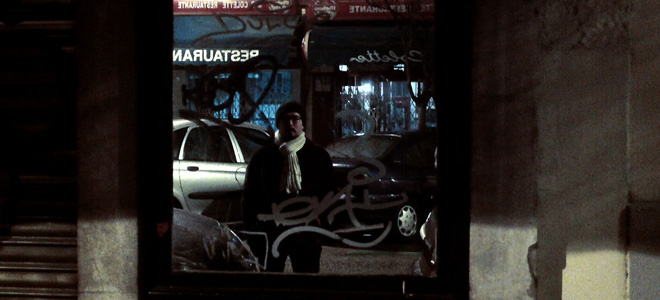
Sergio García Locatelli, Peru / Spain / 2013 / 4'
I keep looking into myself if Madrid is my city. I came here more than 7 years ago from a place 9546 km. far away from here. With the daylight I feel foreigner no matter nobody can tell unless I speak.
- Director: Sergio García Locatelli
- Screening:
- Photography: Sergio García Locatelli, Marta Valdenebro
- Sound:
- Editing: Sergio García Locatelli
- Production: Mauricio Franco, Christian Esquivel
Sergio García Locatelli
Sergio García Locatelli graduated from the Universidad de Lima with a degree in Communications. Received a diploma from the Instituto del Cine de Madrid for direction and screenplay writing in documentary film. Completed a Master of the Arts in Cinematographic screenplay writing from the Escuela de Escritores de Madrid.
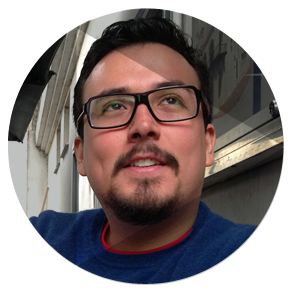
EL JUEGO DEL ESCONDITE
HIDE AND SEEK
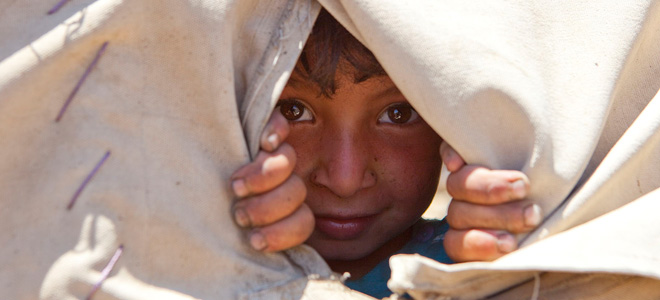
David Muñoz, Spain / 2015 / 23'
A film crew travels to Lebanon to shoot a "Hide & Seek" game film in a Syrian refugee camp.
- Director: David Muñoz
- Screening: 16:9
- Photography: David Muñoz
- Sound: Beltran Rengifo
- Editing: David Muñoz
- Production: David Muñoz
David Muñoz
He writes, directs and produces documentary and fiction films, with more than 100 awards and 500 selections in film festivals. Winner of Goya Award to Best Short Documentary for FLOWERS OF RWANDA. His film THE INFINITE JEST was a Jury Award for Best Short Documentary at the Aljazeera Documentary Film Festival. His film ANOTHER NIGHT ON EARTH won the Film Critics FIPRESCI Award at DOK Leipzig, the NHK Presidential Award, also the Best Feature Documentary Award at Guanajuato International Film Festival. His short fiction film ABOUT NDUGU was a world premiere at the 63 Berlinale and Best Andalusian
Short Film in Almeria International Film Festival. HIDE & SEEK was a World premiere at the 65 Berlinale Shorts official competition and a Jury Award, Biznaga de Plata, at the 18th Festival de Cine de Malaga.
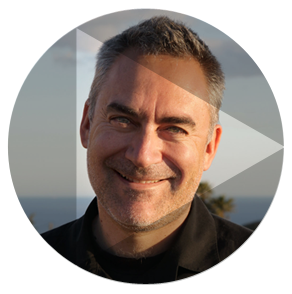
TO BE A POET
TO BE A POET
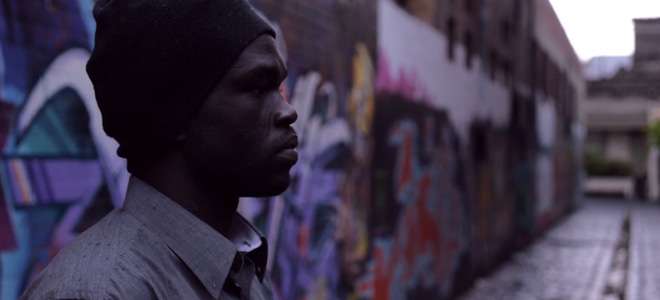
Michael Johnston, Australia / 2014 / 2'43''
Abraham Nouk came to Australia as a Sudanese refugee unable to read, write or speak a word of English. Now, he is an aspiring spoken word artist and poet.
- Director: Michael Johnston
- Screening: HD 16:9
- Photography: Michael Johnston
- Sound: Peter McGrath
- Editing: Michael Johnston
- Production: Michael Johnston
Michael Johnston
Michael Johnston is an emerging documentary filmmaker who aspires to use storytelling to influence social change.
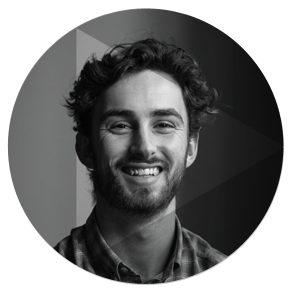
MEIO
MEIO
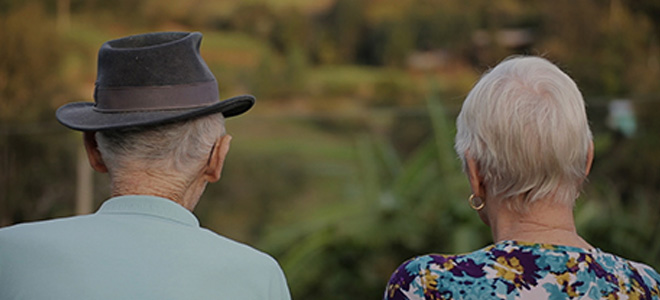
Clarissa Beckert, Pedro Henrique Risse, Brazil / 2014 / 20'
Meio deals with the imaginary of a multiheritaged community's cultural identity: In Vila Rica, a rural area of the municipality Presidente Lucena, south Brazil, 83 year-old Lina lives and remembers. She can only speak and understand the German dialect Hunsrückisch. As a German descendant living in Brazil, she can hardly communicate with her grandchildren, who are brought up speaking brazilian Portuguese. In a near-by school, children learn German, trying to imagine the homeland of their anscestors and questioning what this has to do with their lives in Brazil. The film develops a narrative on the basis of counterpoints underlining the distance that exists between the generations of German descendants in the Vale dos Sinos Valley in Rio Grande do Sul, south Brazil. What does it mean to be a Brazilian? What does it mean to be a German-Brazilian? Or a German? The film deals with the question of identity as something pending between memory and imaginary and sees the language as a means to communicate and to express this identity.
- Director: Clarissa Beckert, Pedro Henrique Risse
- Screening: HD 16:9
- Photography: Pedro Henrique Risse
- Sound: André Garcia
- Editing: Clarissa Beckert, Pedro Henrique Risse
- Production: Clarissa Beckert, Pedro Henrique Risse
Clarissa Beckert
Clarissa Beckert was born in Cologne, Germany in 1987. Her mother is Brazilian and her father German. Questions and inquiries about belonging and cultural identity are constant issues in her life. After her Abitur in Germany, Clarissa obtained a Bachelor degree in Anthropology, Sociology and Political Science Pontifícia Universidade Católica at the in Porto Alegre. She is currently doing her MA in Social- and Cultural Anthropology at the Freie Universität Berlin.
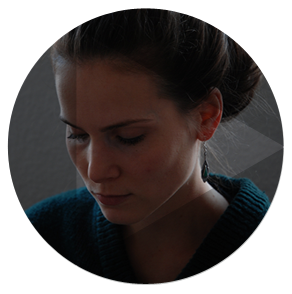
Pedro Henrique Risse
Pedro Henrique Risse was born in Rio de Janeiro, Brazil, in 1985. In 2010, he graduated in Audiovisual Production at the Universidade do Vale do Rio dos Sinos, Rio Grande do Sul. In the same year he co-founded the production company VERTE Filmes with two fellow students. He works in the fields of cinematography, editing and script writing.
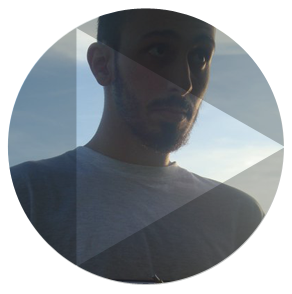
UNSTILL LIVES
UNSTILL LIVES
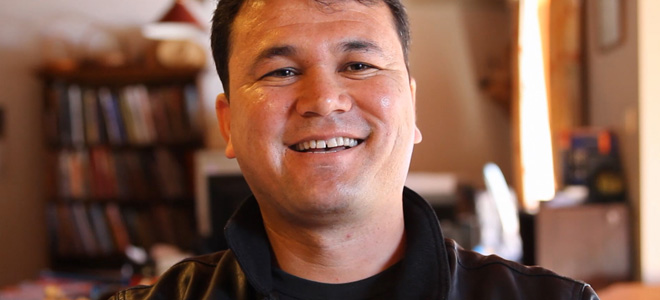
Daz Chandler, Australia / 2014 / 11'
A moving portrait of the Australian, grass-roots organisation, Refugee Art Project, which was founded by a group of artists and academics united by their concern for the plight of refugees awaiting processing in Australian detention centres. Since 2010, the collective has run weekly art classes inside these security facilities; during this process, extraordinary talents have been uncovered and a true passion for art awakened. Alongside the trauma of incarceration and the endless anguish stemming from living in a state of permanent limbo; for many detainees, art is the only dependable source of comfort and available outlet for self-expression.
- Director: Daz Chandler
- Screening: HD 16:9
- Photography: Daz Chandler
- Sound: Tony Vaccher, AudioLoc
- Editing: Jason Azcona, Daz Chandler
- Production: Daz Chandler
Daz Chandler
After studying film production, Daz started her career in advertising & public relations where she prepared fancy blurb & creative for high-profile, international clients. Wanting to develop her muscle as a writer and broadcaster, she left the industry to focus on the community & public media sectors where she presented and produced radio and television, worked in print & digital and curated artistic events in Sydney and Newcastle. In late 2008, inspired by the democratisation of media & rise of independent journalism, she established "Radio Lajee", an English-language media project for young Palestinian refugees living in the occupied West Bank. Recently, she’s been spending most of her time directing a feature-length documentary film called, "Amand(l)a", which follows the life of a politically motivated young woman born the year of the so-called Oslo Peace Process, inside the West Bank. Daz is also on the board of the Sydney-based, Refugee Art Project and her short film, "Unstill Lives" documents RAP's engagement with Australia's refugee and asylum seeker community. Daz’s main interest lies in work that challenges preconceived sociocultural & political notions & ideas, & creates instances of social engagement, or points of connection between unlikely parties. She also enjoys developing projects that indulge her dark sense of humour and flirt with the surreal and unexpected. Her work has screened at international film festivals and shown at galleries in Australia, US, Palestine &Turkey. She collaborates with artists as a videographer, shoots, directs & produces select TVC's, music videos; &helps organisations devise innovative &effective social media &digital campaigns.

SPECIAL SCREENING
ALBUM DE FAMILLE
ALBUM DE FAMILLE
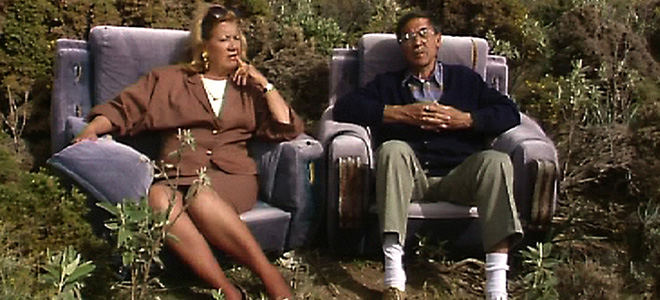
Fernand Melgar, Switzerland / 1993 / 54'
Switzerland experienced in the 50s and 60s an unprecedented economic growth. To cope with increased need for manpower, Switzerland was seeking in southern Europe for nearly a million foreign workers, Italian, Portuguese and Spanish, especially. This film talks about the emigration of a family whose characteristic is to be like thousands of other Spanish families who came to Switzerland, hoping to rebuild their lives.
- Director: Fernand Melgar
- Screening: 4:3
- Photography: Camille Cottagnoud
- Sound: Pascal Fleury, Bernard Seidler
- Editing: Stephane Goel
- Production: Climage
Fernand Melgar
Born in 1961 in Tangier into a family of Spanish anarchist exiles, he was clandestinely snuck into Switzerland by his parents in 1963 when they entered as seasonal workers. In the early 80s he and his friends founded Le Cabaret Orwell, a mecca of underground culture in western Switzerland, followed by the internationally famous rock venue La Dolce Vita. Following a screening of experimental films, he turned himself into a self-taught independent film director and producer. He created experimental films and iconoclastic television segments in 1983. In 1985 he joined the production company Climage, with whom he has stayed a faithful collaborator, and has produced over twenty well-regarded documentaries on the subjects of immigration and identity. He was the editor for the films of Jacqueline Veuve, whose Le Journal de Rivesaltes was awarded with the Swiss Film Award in 1998. His documentary Exit – the right to die received several international awards including the prestigious Golden Link UER Award for the best European co-production and also the Swiss Cinema Award in 2006. In 2008 his documentary The Fortress won the Golden Leopard at the Locarno Film Festival as well as many other international awards. His film Special Flight, shot in 2011 in an administrative detention centre, received more than thirty international awards, including the Swiss Film Award and the Prix Europa. In his 2013 follow-up The world is like that, Fernand Melgar tells the story of some of Special Flight’s protagonists after their expulsion from Switzerland. His last film The Shelter was filmed in an emmergency shelter for homeless people in Lausanne.

SPECIAL SCREENING
VOL SPÉCIAL
VOL SPÉCIAL
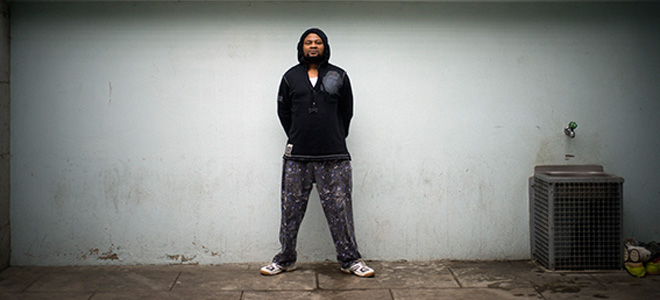
Fernand Melgar, Switzerland / 2011 / 100'
Every year in Switzerland, thousands of men and women are held without trial or conviction. Simply because reside illegally in the territory may be deprived of liberty for 18 months while awaiting deportation. After "La Forteresse" - Golden Leopard at the Locarno festival - which dealt with the conditions of reception of asylum seekers in Switzerland, Fernand Melgar takes a look at the other end of the chain, the end of the migration path. The filmmaker is immersed for 9 months in Frambois Administrative Detention Center in Geneva, one of the 28 deportation centers for undocumented migrants. Disorderly, we found in Frambois, asylum seekers and illegal immigrants. Some live in Switzerland for years, started a family and work. Contribute to social security and send their children to school. Until the day that the immigration authorities arbitrarily decide to put them in jail to ensure their departure. The problem is that no detainee is willing to leave the country voluntarily. So begins a long and hard administrative process to force them to leave. In this prison, the face-to-face between staff and inmates take, after a few months, an intensity, sometimes unbearable. On the one hand, a small motivated team, rich in human values, on the other hand, men, defeated, exhausted by fear and stress. There are cases of friendship and hate, respect and revolt, gratitude and resentment. Until the announcement of the expulsion, often experienced by detainees as a betrayal, as a last stab. This relationship "à la vie à la mort", as, unfortunately, proves the most dramatic episode of the film ends, in most cases, in suffering and humiliation. Crushed by law and its relentless administrative gear, those who refuse to leave voluntarily will be handcuffed, tied up and forcibly placed on a plane. In this extreme situation despair has a name: Vol spécial (Special flight).
- Director: Fernand Melgar
- Screening: 16:9
- Photography: Denis Jutzeler
- Sound: Christophe Giovannoni
- Editing: Karine Sudan
- Production: Climage
Fernand Melgar
Born in 1961 in Tangier into a family of Spanish anarchist exiles, he was clandestinely snuck into Switzerland by his parents in 1963 when they entered as seasonal workers. In the early 80s he and his friends founded Le Cabaret Orwell, a mecca of underground culture in western Switzerland, followed by the internationally famous rock venue La Dolce Vita. Following a screening of experimental films, he turned himself into a self-taught independent film director and producer. He created experimental films and iconoclastic television segments in 1983. In 1985 he joined the production company Climage, with whom he has stayed a faithful collaborator, and has produced over twenty well-regarded documentaries on the subjects of immigration and identity. He was the editor for the films of Jacqueline Veuve, whose Le Journal de Rivesaltes was awarded with the Swiss Film Award in 1998. His documentary Exit – the right to die received several international awards including the prestigious Golden Link UER Award for the best European co-production and also the Swiss Cinema Award in 2006. In 2008 his documentary The Fortress won the Golden Leopard at the Locarno Film Festival as well as many other international awards. His film Special Flight, shot in 2011 in an administrative detention centre, received more than thirty international awards, including the Swiss Film Award and the Prix Europa. In his 2013 follow-up The world is like that, Fernand Melgar tells the story of some of Special Flight’s protagonists after their expulsion from Switzerland. His last film The Shelter was filmed in an emmergency shelter for homeless people in Lausanne.

SPECIAL SCREENING
LE SAULT
O SALTO
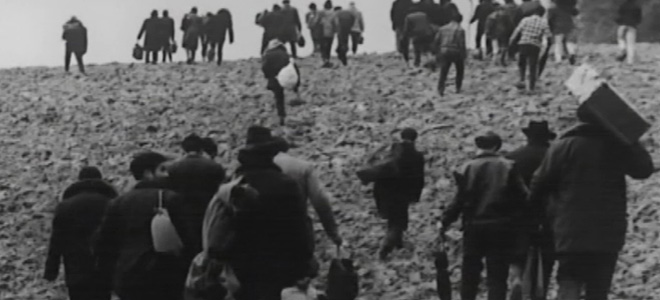
Christian de Chalonge, France / 1967 / 88'
António is a Portuguese carpenter who, in order to escape poverty and the colonial war, decides to immigrate to France, responding to the wishes of a friend. After the hardness of crossing the border, the difficulties in Paris multiply. Without papers, without work and without being able to speak French, António wanders the city in search of Carlos, the friend who had promised him help. In his lonely journey, hope and optimism give way to disappointment, a feeling shared by many Portuguese people he meets along the way. An emblematic film on illegal Portuguese emigration, O Salto is imbued with a strong political and ideological load due to the effervescent atmosphere lived in France at the time. The increasing migration flow, the conditions under which migrants departed – on foot and cargo vans - and the way they were received in France are issues portrayed in a raw and realistic way.
- Director: Christian de Chalonge
- Photography: Alain Derobe
- Sound: Guy Villette, Victor Revelli
- Music: Luís Cília
- Editing: Hélène Arnal, Annie Charvein, Liliane Bobovnikoff
- Actors: Marco Pico, Antonio Passalia, Ludmila Mikael, Henrique de Sousa e António Assunção
- Production: Philippe de Broca
Christian de Chalonge
Director and screenwriter, Christian de Chalonge was born in Douai, France, in 1937. Filmography as director: Le Bourgeois gentilhomme (2009); Le Malade imaginaire (2008); L'Avare (2006) Maigret: La maison de Félicie (2002); Maigret chez le ministre (2002); Maigret et le marchand de vin (2002); Maigret: Un meurtre de première classe (1999); Le Comédien (1997); Le Bel été 1914 (1996); Le Voleur d'enfants (1991); Le Diable en ville (1990); Docteur Petiot (1990); Malevil (1980); L'Argent des autres (1978); L'Alliance (1970); O Salto (1968).
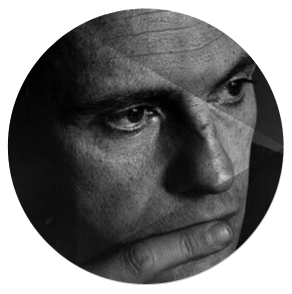
SPECIAL SCREENING
LORETTE ET LES AUTRES
LORETE E OS OUTROS
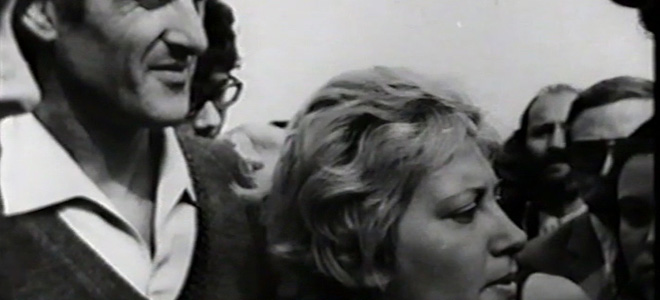
Dominique Dante, France / 1973 / 40'
The Portuguese Laurete Fonseca, a mother of five, lives in a bidonville in Massy (Essonne) on the outskirts of Paris. When confronted with the relocation process carried out by the French Interior Ministry, Laurete opposes determinedly to this reality, which in her view will create a situation of greater social isolation for her and her children. Massy is home to over 100 Portuguese and Arab emigrants. As in all other bidonvilles, one of the first pressures on emigrants was the dispersion of its inhabitants, separating friends and neighbors without offering them alternatives. Emigrants are threatened with the withdrawing of residence permits and the destruction of tents and sheds where they live, etc. Laurete started helping, from 1969, her often illiterate compatriots in obtaining visas and residence permits from the local authorities (Mairie) and the Police Commissioner and also belongs to the bidonville (slum) protection committee. She engages in a continuous struggle between emigrants and institutions. A number of pressures were exerted on Laurete for many years - expulsion threats and difficulties to extend her residence permit. Supported by the neighborhood defense committee, Laurete resists and ends up staying in France but had to give in, to become invisible, to delete herself.
- Director: Dominique Dante
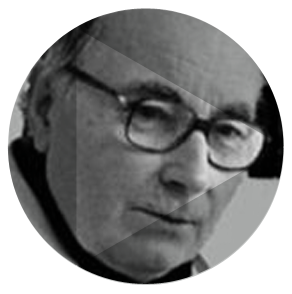
SPECIAL SCREENING
CARTA DE CHAMADA
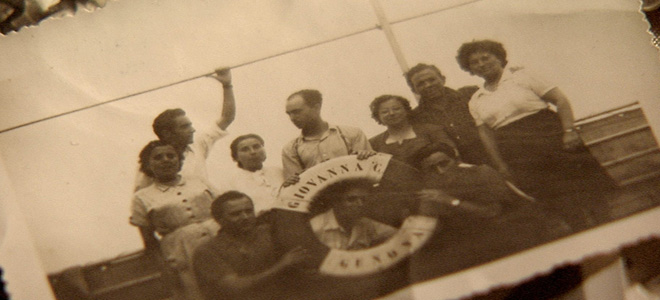
Cristina Ferreira Gomes, Portugal / 2005 / 62'
The photograph shows them together. A group of women and men brought together by fate. It is the portrait of a generation, a piece of Portugal that crossed the Atlantic in search of a golden life in a country that speaks the same language. Fifty years later, what happened to these people united by chance on a day of travel and joined in a black and white instant?
- Director: Cristina Ferreira Gomes
- Photography: Miguel Salles Lopes
- Imagem adicional: David Matos
- Sound: Armanda Carvalho
- Edição: Helena Alves
- Pós Produção áudio: António Pinto
- Direcção de Produção: Lila Lacerda
- Secretária de Produção: Ana Gomes
- Assistente de produção no Brasil: Heitor Mizuki
- Pesquisa: Cristina Ferreira Gomes, Adriana dalla Ono, Sílvia Guimarães, Ana Gomes, Paula Oliveira
- Production: Nanook
Cristina Ferreira Gomes
Cristina Ferreira Gomes worked as a journalist and screenwriter. Currently, she is a director and producer.
Directed the documentaries: Max, o Menino do Assobio, 2015; Laurinha, 2012; Domingo à Tarde, 2012; Menina Limpa Menina Suja, 2011; Carta de Chamada, 2005; Mulheres ao Mar, 2002.
